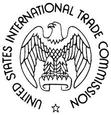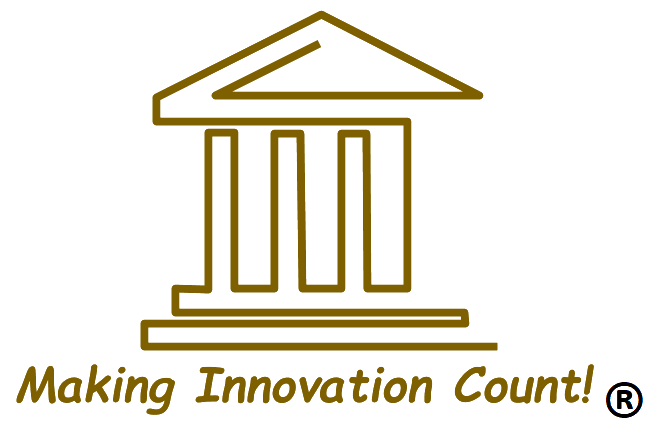|
A video of Dr. Francis Gurry, Director General of World Intellectual Property Organization (WIPO), speaking at Melbourne Law School. This lecture explored the major economic, social, and political developments affecting intellectual property. It also examined how innovation and intellectual property are increasingly central to economic strategy and competitive advantage, and showed how the knowledge economy is causing an adjustment to the way in which we think of the role of intellectual property.
1 Comment
This USPTO video provides a quick and easy breakdown of the three main types of intellectual property: trademarks, patents, and copyrights. You’ll learn how trademarks differ from domain names and business names. By the end of the video, you’ll understand how to use each type of intellectual property to protect a different aspect of your business.  The Patent Resources Group is a provider of courses and publications in all aspects of patent practice and will be kicking off their annual advanced courses program in Florida on April 10 - 16. They will be having a number of really interesting offerings and I am currently interested in "Art & Science of Patent Searching". Check out all of the courses by clicking on their logo.  There are different strategies a patent holder can use against an infringer. Normally some sort of "cease and desist" letter is sent out and after some level of negotiations the parties come to terms and life goes on. However if the patent holder cannot come to terms with the infringer then the patent holder, with advice of counsel, must decide upon a legal strategy. Possible legal strategies include taking the matter to a State or Federal court. Increasingly a number of patent holders are taking the matter to the U.S. International Trade Commission (ITC). Thomas Martin, a patent attorney with Baker Botts, wrote this excellent, but legally technical, article on some of the advantages and disadvantages of taking a matter to the ITC. If you are a patent holder and your patent is being infringed upon take the time to read this article. It is not very long and if you have any questions don't hesitate to give me a call. Question: If I create a company to sell T-Shirts, what is the extent to be able to use likeness of other intellectual property.
Facts: I want to start a company to sell T-Shirts, and I want to use the likeness of things from video games and movies. I see others selling shirts with the likeness or even the characters themselves on the shirt. I want to know, if I were to use the likeness of the IPs, where is the breaking point? Where is it copyright infringement. Answer: Intellectual Property covers the application of laws to the fields of patents, trademarks, copyrights, and trade secrets. I will cover each field as it applies to the images you use on your t-shirts. Patents A patent is an exclusive right given to an inventor to exclude others, in this country, in the sale or manufacture of the idea covered by the claims in the patent. The public policy behind patents is to encourage inventors to innovate by granting them the exclusive right to exclude others in return for their disclosure of the idea to the public who can then build upon the idea to create new innovations. For an invention to be patentable it has to be (i) useful, (ii) novel, and (iii) not obvious. The lifespan of a patent is 20 years from the date it is filed. Here you will not be able to receive protection for your images by the use of a patent because the images on your t-shirts will not be considered “useful”. The USPTO considers an invention useful if it has some utility and images are not considered to have any utility. There does exist a class of patents called “Design Patents” which does protect ornamental features of a useful product. You could argue that the t-shirt is useful, provides cover and warmth, thus satisfying the first test. However the USPTO will likely find that your images are not novel and that the idea of putting images on t-shirts is obvious. Thus it is unlikely that the USPTO will grant you a Design Patent on your images. The plus side of this is that the likelihood of you being sued for patent infringement is unlikely as your competitors will not be able to protect their images with a patent. In summary, patent laws are just not applicable here. Trademark Many people think of logos that identify a company when considering trademarks. However that is just one a small part of the laws regarding trademarks. The Aspen outline on Intellectual Property describes trademarks as follows: “Trademarks permit consumers to identify the source of goods or services. The purpose of trademark law is to ensure that consumers are able to rely on marks in exercising their purchasing preferences by prohibiting competitors from using marks in a way that confuses consumers about the source, sponsorship, or affiliation of goods or services.”. So the public policy behind trademarks is to protect the consumer so if the consumer sees a car with the famous BMW logo on it they will know that the source of the car is BMW and not Ford. Here you have not described any of the images you are using other than that they will be like characters and images used by other companies. If you sell a t-shirt with an image of the BMW logo and consumers, when looking at the shirt, believe that the shirt is an authentic BMW t-shirt then you have infringed on the BMW trademark. Likewise with characters. You sell a shirt with an image of Snow White on it that leads people to believe that it is the same Snow White made famous by Disney then you have infringed on Disney’s Snow White trademark. Trademark law has additional complexities in that some marks are “Famous” marks, marks are registered in certain “classes”, and marks can have national, state, and/or local scope. However I have given you some basic information to go by. In summary trademark law does apply to your case. If you places images on your t-shirts that suggest to the consumer that the source of the t-shirt is a company other than yours you are likely infringing on someone’s trademark. Penalties include significant fines. The advantage you have on your side is that you are a small fish in a big pond. My recommendation is to remember the golden rule. After all you would not want someone to use a hot selling mark that you created would you? Copyright A copyright is automatically granted to the creator of certain original works of authorship. The “work” must be a substantial expression of an idea placed onto some tangible medium. The public policy behind copyrights is to allow the owner of the copyright to control who can copy their original work of authorship. Copyright differs from trademarks a couple ways. First is that the purpose of trademark law is to protect the consumer while copyright law protects the author. Second is that while a trademark can protects slogans and logos a copyright will only apply to “substantial” works such as poems, books, photographs, and such. There are however some similarities between the two areas of law. You do not need to register your mark or copyright to obtain the provided protections, you get them automatically (note that by registering your mark or copyright will get you expanded rights). Also they have to be “tangible”. That is they have to be on some reproducible medium such as paper or in a computer file. There are some exceptions but I will exclude the exceptions here so as not to confuse the discussion. Here you have stated that you will use images that are like other images. If the images are similar than you possibly have violated someone’s copyright. It is best to talk to a IP attorney but a good test is to show your images to others along with the image that served as your creative source. If the people you show your images to do not see any similarities then it is likely that you are not violating any copyrights. If your images have no creative source other than your mind then it is also likely you are not violating any copyrights. Copyright law does apply to your case here. Since you state that your images will be like other images it is likely that you will be violating someone’s copyright. Penalties include significant fines. The advantage you have on your side is that you are a small fish in a big pond. Again, my recommendation is to remember the golden rule. After all you would not want someone to offer for sale a hot selling image that you created would you? Question: Is it against the law to buy a product, repackage it with my company's brand/product name and then sell it online and/or in stores?
Facts: I would like to buy in bulk products from a company, repackage the product using a different container with my company's brand and product name, and then resell it on my company's website as well as in stores. The product will not be changed in any way. Does this violate any laws? Answered: Like many of the questions posted here by individuals such as yourself there is just not enough information to come to a conclusion. I will present you with some guidance so that you will understand some of the legal issues being raised here. However I would strongly recommend that you sit down with an “Intellectual Property” attorney and disclose in detail your plans. An ounce of prevention is worth a pound of cure they say and that applies here. Making the wrong decisions may impact your relationship with your supplier and your customers and cause harm to your business. One area of law raise here is Trademarks. Many people think of logos that identify a company when considering trademarks. However that is just one a small part of the laws regarding trademarks. The Aspen outline on Intellectual Property describes trademarks as follows: “Trademarks permit consumers to identify the source of goods or services. The purpose of trademark law is to ensure that consumers are able to rely on marks in exercising their purchasing preferences by prohibiting competitors from using marks in a way that confuses consumers about the source, sponsorship, or affiliation of goods or services.”. Here you are presenting to the consumer a product as if you were the source product because you are repackaging the product with your company’s brand and product name. A consumer purchasing the product would not realize that the source of the product was your supplier and not you. Another area of law raised here is Patents. A patent owner is granted by the Federal government the exclusive right to prevent others from infringing on the patent. A patent may be infringed by even selling a patent protected product without its owner permission. There may be other areas of law raise by facts that you have not included here. In general I would recommend that not resell your supplier’s products in your own packaging unless you have obtained their written consent to do so. Speak with an Intellectual Property Attorney. They will be able to help you in drafting the agreement so that your rights are protected and your business will not be harmed by this practice. Question: Do I own ideas and research that I have put together off the clock?
Facts: I am presenting an idea for a new division for my company. I have countless presentations and financials that I have put together on my time. If my company decides it is not a route they want to go, do I still own the idea and research? Answer: First look at any agreements you signed with your employer when you started. Most employer / employee agreement have a clause basically saying that all intellectual property (IP) you create, regardless if you are on the clock or not, belongs to the employer. If the IP you create outside of work is in a different field of work than what your employer is in you may have an argument in court to say that the IP belongs to you. However from your facts it seems that the IP is in the same field of work that your employer is in so their legal position is stronger than yours. If there are no agreements between you and your employer then your legal position is stronger but it would still be weaker than your employer's legal position. The courts usually take the view that IP created by an employee belongs to the employer. Note that this view does not apply to independent contractors where the result is the opposite unless the independent contractor was hired specifically to create the invention. However from your facts you seem to be an employee. In summary, considering you fact that the IP you created on your own time is in the same field of work as your company is in, it is likely that the IP you created belongs to your company. I would recommend that if your ideas are rejected by your company that you ask your company to release those ideas to you. This may involve some negotiation and an agreement will have to be created. Contact an IP attorney to help you in this matter. The advantage of this approach is that it will reduce the risk of litigation later on if you do use the ideas. Another advantage is that the consideration you have to provide your company to release the ideas will be less than what you would have to pay later on if you do use the ideas and they were successful. An example of this is Facebook. If Mark Zuckerberg, founder of Facebook, got an agreement from the Winklevoss twins to release the idea to him I am sure he would have had to give them far less consideration than the millions he paid them after Facebook was successful. Question: How do I insure a business conversation remains confidential?
Facts: I am looking to start a new business service in order to improve the idea I looking to talk to owners of small businesses. Is there some sort of agreement or form that can be used to insure everything that is discussed will remain confidential. Answer: There exists a set agreements called "Nondisclosure Agreement" and "Nonuse Agreement". A search on the internet will turn up a number of hits on example agreements. Although I cannot endorse any of them and they would need to be modified to your specific needs they will provide you with a good starting point and an attorney can make any necessary final adjustments. It is important to note that if a business could prove that your idea is ordinary, obvious, or that they were already in possession of it, they could argue that there was no agreement formed because they got nothing of value in exchange for their promise not to disclose. The reason for this is that the law of contracts holds that an enforcable bilateral contract is a contract where promises are exchanged for consideration. So basically you are promising to give valuable information to the business in exchange for their promise not to disclose or use it. If you do not give valuable information to the business then the business would be free to disclose it or use it. A valuable idea is an idea that is novel. You can search the patent database at patents.google.com to see if your idea is novel. If your idea is indeed novel then a provisional patent application will do a better job of protecting your idea than a NDA would. My advice is to do some research on the internet on these agreements and on your idea. Then meet with an attorney to draft an agreement that will be enforceable in court or help you file a provisional patent application to better protect your idea. |
Categories
All
|
California, Inland Empire - (909) 566-2801
California, Santa Barbara - (805) 500-6241
Tennessee - (423) 226-8036
Georgia - (404) 436-0899
California, Santa Barbara - (805) 500-6241
Tennessee - (423) 226-8036
Georgia - (404) 436-0899

